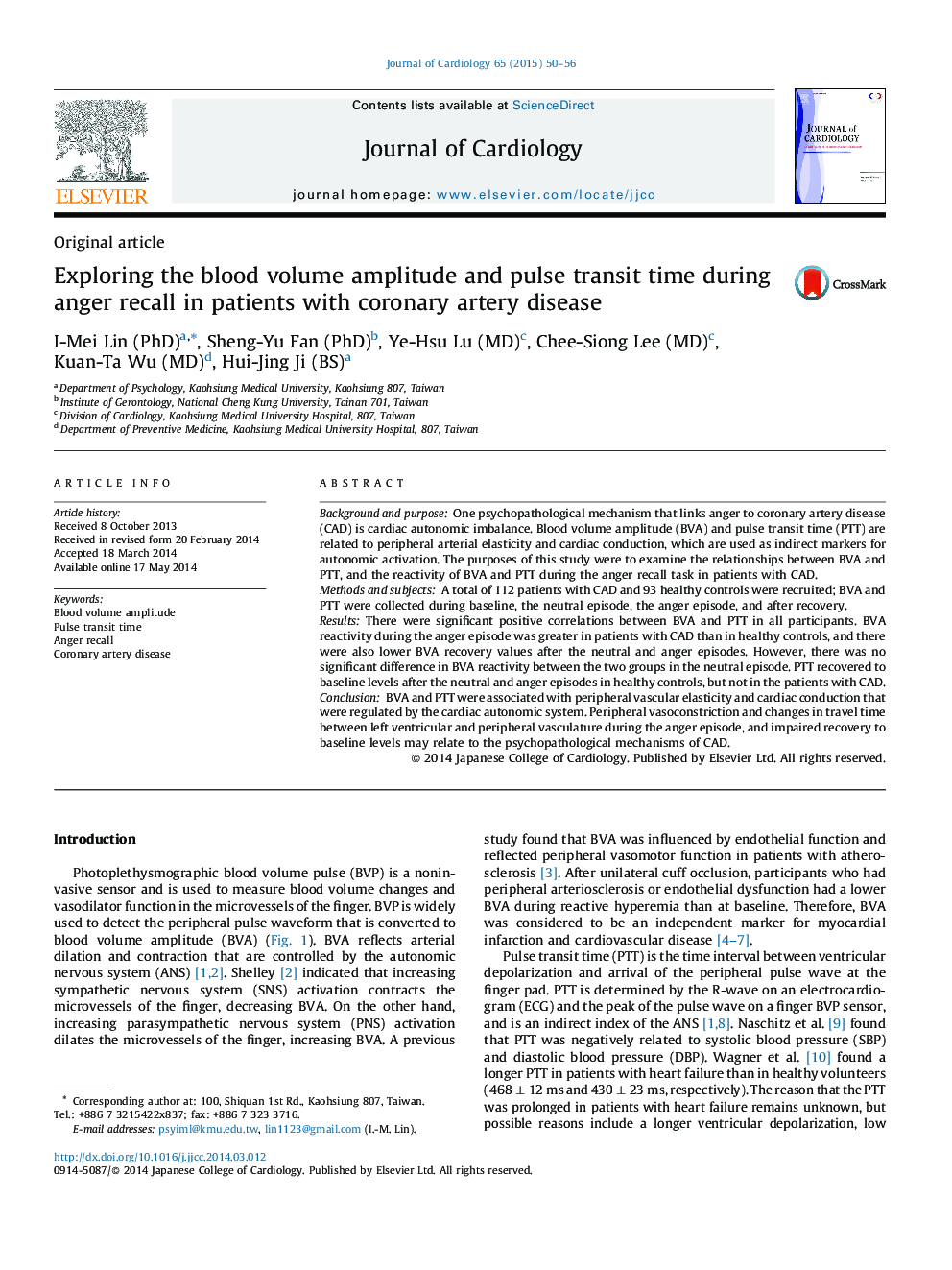| Article ID | Journal | Published Year | Pages | File Type |
|---|---|---|---|---|
| 5984007 | Journal of Cardiology | 2015 | 7 Pages |
Background and purposeOne psychopathological mechanism that links anger to coronary artery disease (CAD) is cardiac autonomic imbalance. Blood volume amplitude (BVA) and pulse transit time (PTT) are related to peripheral arterial elasticity and cardiac conduction, which are used as indirect markers for autonomic activation. The purposes of this study were to examine the relationships between BVA and PTT, and the reactivity of BVA and PTT during the anger recall task in patients with CAD.Methods and subjectsA total of 112 patients with CAD and 93 healthy controls were recruited; BVA and PTT were collected during baseline, the neutral episode, the anger episode, and after recovery.ResultsThere were significant positive correlations between BVA and PTT in all participants. BVA reactivity during the anger episode was greater in patients with CAD than in healthy controls, and there were also lower BVA recovery values after the neutral and anger episodes. However, there was no significant difference in BVA reactivity between the two groups in the neutral episode. PTT recovered to baseline levels after the neutral and anger episodes in healthy controls, but not in the patients with CAD.ConclusionBVA and PTT were associated with peripheral vascular elasticity and cardiac conduction that were regulated by the cardiac autonomic system. Peripheral vasoconstriction and changes in travel time between left ventricular and peripheral vasculature during the anger episode, and impaired recovery to baseline levels may relate to the psychopathological mechanisms of CAD.
